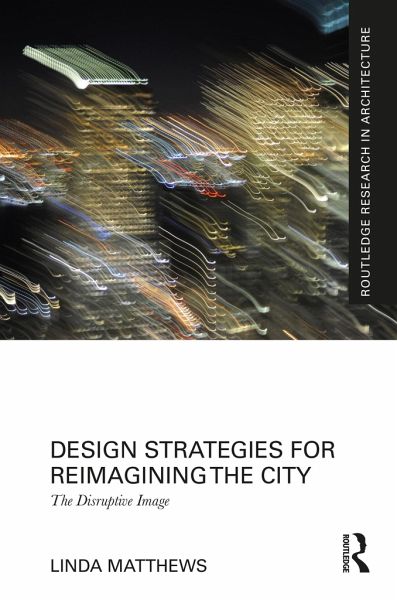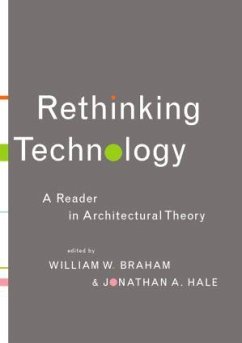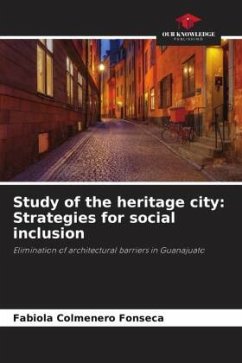
Design Strategies for Reimagining the City
The Disruptive Image
Versandkostenfrei!
Versandfertig in 6-10 Tagen
127,99 €
inkl. MwSt.
Weitere Ausgaben:

PAYBACK Punkte
64 °P sammeln!
Design Strategies for Reimagining the City is situated between projective geometry, optical science and architectural design. It draws together seemingly unrelated fields in a series of new digital design tools and techniques underpinned by tested prototypes.The book reveals how the relationship between architectural design and the ubiquitous urban camera can be used to question established structures of control and ownership inherent within the visual model of the Western canon. Using key moments from the broad trajectory of historical and contemporary representational mechanisms and techniqu...
Design Strategies for Reimagining the City is situated between projective geometry, optical science and architectural design. It draws together seemingly unrelated fields in a series of new digital design tools and techniques underpinned by tested prototypes.
The book reveals how the relationship between architectural design and the ubiquitous urban camera can be used to question established structures of control and ownership inherent within the visual model of the Western canon. Using key moments from the broad trajectory of historical and contemporary representational mechanisms and techniques, it describes the image's impact on city form from the inception of linear perspective geometry to the digital turn. The discussion draws upon combined fields of digital geometry, the pictorial adaptation of human optical cues of colour brightness and shape, and modern image-capture technology (webcams, mobile phones and UAVs) to demonstrate how the permeation of contemporary urban space by digital networks calls for new architectural design tools and techniques. A series of speculative drawings and architectural interventions that apply the new design tools and techniques complete the book.
Aimed at researchers, academics and upper-level students in digital design and theory, it makes a timely contribution to the ongoing and broadly debated relationship between representation and architecture.
The book reveals how the relationship between architectural design and the ubiquitous urban camera can be used to question established structures of control and ownership inherent within the visual model of the Western canon. Using key moments from the broad trajectory of historical and contemporary representational mechanisms and techniques, it describes the image's impact on city form from the inception of linear perspective geometry to the digital turn. The discussion draws upon combined fields of digital geometry, the pictorial adaptation of human optical cues of colour brightness and shape, and modern image-capture technology (webcams, mobile phones and UAVs) to demonstrate how the permeation of contemporary urban space by digital networks calls for new architectural design tools and techniques. A series of speculative drawings and architectural interventions that apply the new design tools and techniques complete the book.
Aimed at researchers, academics and upper-level students in digital design and theory, it makes a timely contribution to the ongoing and broadly debated relationship between representation and architecture.














